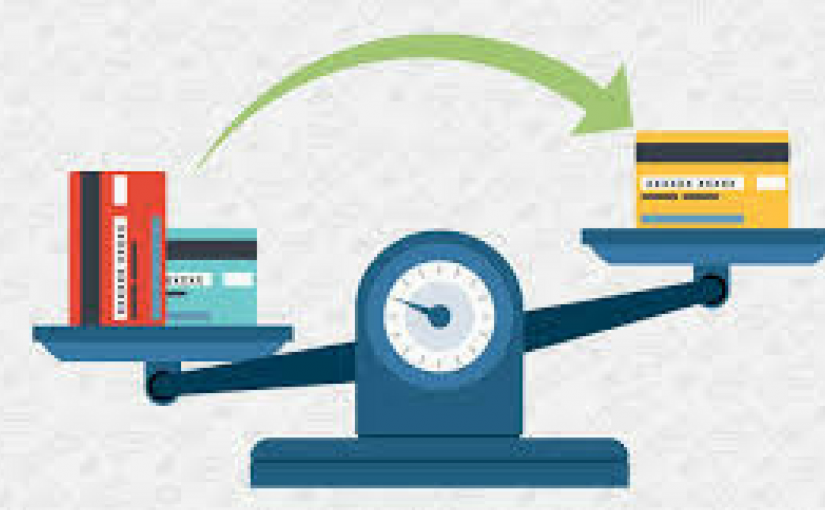This post may contain affiliate links please read our disclosure for more info.
Image credit: https://www.creditcards.com/
If you have ever had more than credit card and realised that the payments you are making are mostly going to pay off interest only, a balance transfer might be a good solution for you. A balance transfer occurs when you open a new credit card account and transfer the balance from an existing card or cards to the new card. This can work out well for you if the new card offers you a 6 month 0% interest free period. You will then have the opportunity to pay off more of your credit card balance because you have 6 months to make payments without accruing interest.
This is the primary advantage of balance transfers, the interest free period. Before taking out a new balance transfer credit card read the terms and conditions and find out what the interest rate will be after the 6 month period. Financial institutions offer balance transfer credit cards because they know that many people will not be able to clear their balance within 6 months and as a consequence they will then have to pay interest to the financial institution. This is when they are able to make money from you; sometimes there is a fee for balance transfer. Usually financial institutions will also make money if you make any new purchases or cash withdrawals too, so try to avoid any new transactions altogether on the new card.
Make Balance Transfers Work For You
*Use an online comparison tool to find out which are the best balance transfer credit cards for your requirements and check your eligibility. Do not apply for too many cards because your applications will be recorded on your credit record and you do not want to appear desperate.
*Balance transfers are not offered to everyone, if you have a poor credit rating this opportunity might not be open to you. Click on this link to find out more about credit ratings. If you are can get a new balance transfer card, sign up and use it.
* If your application is successful, transfer your balance or balances to the new card and continue to make regular payments to reduce the amount that you owe. It will make your financial life simpler and more manageable.
*Calculate your desired repayment amount and set yourself the goal of clearing your new credit card by a specific date. Ideally this will be within the interest free 6 month period.
*Consider this strategy that I have used personally, when one 6 month period is about to finish it will should still be possible to transfer to another new balance transfer card and in doing so gain another 6 months at 0% interest. More time to clear your balance will help you make faster progress clearing your debts. Read this post for more information on clearing debts, What’s the Best Strategy for Clearing Debts?
What Should You do?
If you follow the approach listed above, balance transfers can become an excellent strategy for rapid debt reduction and will move you closer to being debt free
Have you used balance transfer cards to reduce your debts? Would you use them again? Let me know in the comments section below.
If you have enjoyed this post you will also like the following posts:
What’s the Best Strategy for Clearing Debts?
Save up to £300 per year by Changing Broadband Supplier
Investments: Why Saving is Not Enough
How to Stop Emotional Spending
Water Bills: Are you Pouring Money down the Plughole?
How to Stick to Your Budget During Summer: 5 Tips
Does Your Choice of Supermarket Matter?
Save Money by Switching Energy Supplier Every Year
How to Stop Impulse Buying – 10 Ways
Have you Found all of Your Dormant Accounts?
Can you live off a Cash Budget for a Week?
Has the Cryptocurrency Bubble Burst?
Why you Should Drive and Old Car and Pay of Your Mortgage Early
Make Money By Being Part of a Focus Group
My aim with each blog post is to help you move to a better financial future. I believe that there is not enough financial education in the national curriculum and I intend to share anything helpful that I have learned along the way. I am by no means a financial expert. None of the information on this website constitutes financial advice and is provided as general information only. This is my personal finance blog; my marketing blog is over here and I have been blogging there since 2010. I hope you have found this information useful. Thank you for reading.
Best regards,
Mike



